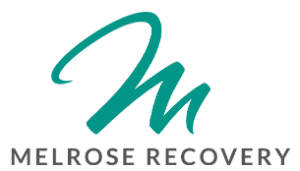Lexapro And Alcohol
Lexapro And Alcohol – Welcome to Melrose Recovery, your pathway to transformation and healing. Located in the vibrant heart of Los Angeles, California just moments away from iconic Hollywood and the picturesque beaches of Santa Monica and Venice, we are dedicated to changing lives. Since 2015, our comprehensive drinking on Lexapro addiction treatment approach encompasses detoxification, residential care, and aftercare services, all tailored to meet each individual’s unique needs on their recovery journey.
Led by a compassionate team of addiction professionals and counselors, we offer a range of therapy programs designed to support and guide individuals suffering Lexapro and drinking withdrawal toward lasting sobriety. At Melrose Recovery, we believe in the power of personalized care and diverse treatment options to pave the way for a brighter future.

Lexapro and Alcohol: Understanding the Risks and Side Effects
Lexapro (generic name: Escitalopram) is an FDA-approved medication commonly prescribed to treat major depressive disorder (MDD) and generalized anxiety disorder (GAD). If you’ve recently started taking Lexapro, it’s important to be cautious about alcohol consumption.
This article explores the potential dangers of mixing Lexapro with alcohol, including side effects, short- and long-term health risks, and what you should avoid while on this medication.
What Happens When You Combine Lexapro And Alcohol?
Escitalopram belongs to a class of antidepressants known as selective serotonin reuptake inhibitors (SSRIs). While effective in managing depression and anxiety, Lexapro can interact negatively with many substances—alcohol being one of the most concerning.
Mixing alcohol with Lexapro may:
-
Worsen symptoms of depression and anxiety: Alcohol can counteract the medication’s benefits, intensifying feelings of sadness, hopelessness, or anxiousness.
-
Amplify sedative effects: Both alcohol and Lexapro can cause drowsiness. Together, they can make you excessively tired, dizzy, or disoriented.
-
Impair mental and physical function: Your coordination, judgment, and alertness may be significantly reduced, increasing the risk of accidents and injuries.
For these reasons, healthcare providers typically advise avoiding alcohol entirely while taking Escitalopram.
Common Lexapro Side Effects (Without Alcohol) – Lexapro And Alcohol
Even when taken as prescribed and without alcohol, Escitalopram can cause side effects. Some of the most frequently reported include:
-
Drowsiness or fatigue
-
Dizziness
-
Trouble sleeping
-
Difficulty concentrating
-
Increased anxiety or agitation
-
Headaches
-
Yawning
-
Changes in libido or sexual function
Less common but more serious side effects may include:
-
Irregular heartbeat
-
Blood in urine or vomit
-
Heavy or prolonged menstrual bleeding
-
Dark urine or painful urination
-
Nosebleeds
If you experience any of these symptoms, especially the severe ones, contact your doctor immediately.
How Alcohol Affects the Body and Mind – Lexapro And Alcohol
Alcohol is widely used around the world, but it’s also a substance with high potential for abuse. According to the World Health Organization (WHO), alcohol contributes to more than 2 million deaths globally each year.
Short-term effects of alcohol can include:
-
Lowered inhibitions and impaired judgment
-
Reduced coordination and motor skills
-
Slurred speech and memory lapses
-
Loss of consciousness or blackouts
Long-term or heavy alcohol use is linked to:
-
Increased risk of several cancers
-
Brain damage
-
Mental health disorders
-
In some cases, death due to alcohol poisoning or accidents
Can You Drink Alcohol While Taking Lexapro?
In short—no, it’s not recommended.
Alcohol not only heightens Lexapro’s side effects but also increases the risk of complications. If you have a history of alcohol use or find yourself struggling to avoid drinking while on Lexapro, speak openly with your healthcare provider. It’s important to have a treatment plan that addresses both mental health and substance use.
Short-Term and Long-Term Risks of Mixing Lexapro and Alcohol
Short-term dangers include:
-
Severe drowsiness
-
Impaired focus and reaction time
-
Increased risk of falls or accidents
Long-term risks can seriously impact your mental health. For individuals with depression, combining alcohol and Lexapro may lead to:
-
Persistent sadness and feelings of worthlessness
-
Loss of interest in daily activities
-
Increased suicidal thoughts or behavior
For anxiety disorders, the risks include:
-
Chronic restlessness and worry
-
Irritability and emotional instability
-
Sleep disturbances and fatigue
In extreme cases, mixing these substances can lead to violent behavior or dangerous self-harm.
The Impact of Alcohol on Mental Health Conditions – Lexapro And Alcohol
Alcohol is a central nervous system depressant. While moderate, occasional drinking is common in social settings, heavy or chronic use can severely worsen mental health issues.
According to standard definitions:
-
Heavy drinking for men = 5+ drinks in a single occasion or 15+ drinks per week
-
Heavy drinking for women = 4+ drinks in a single occasion or 8+ drinks per week
For those with depression or anxiety, heavy alcohol use may:
-
Deepen existing symptoms
-
Increase suicidal ideation
-
Disrupt daily functioning
-
Complicate treatment and recovery
Alcohol use disorder is also frequently seen alongside other conditions such as:
-
Post-traumatic stress disorder (PTSD)
-
Sleep disturbances
-
Schizophrenia or psychotic disorders
-
High stress levels
Chronic alcohol use can damage personal relationships, work performance, and overall quality of life.
Final Thoughts – Lexapro And Alcohol
If you’re taking Lexapro, it’s best to avoid alcohol altogether. The combination poses significant risks—both physical and mental—that can undermine your treatment progress. If you’re struggling with alcohol use or concerned about how it interacts with your mental health, seek support from a healthcare professional.
Managing depression and anxiety effectively means understanding how different substances affect your treatment—and making choices that support your well-being in the long run.
Frequently Asked Questions About Lexapro And Alcohol
Can I drink alcohol while taking Escitalopram?
No. It is not recommended to drink alcohol while taking Lexapro, as it can worsen side effects and reduce the medication’s effectiveness.
What happens if I mix Lexapro and Vodka?
You may experience increased drowsiness, dizziness, impaired judgment, worsened anxiety or depression, and potentially dangerous side effects.
Why is mixing Lexapro with alcohol dangerous?
Both substances affect the central nervous system. Together, they can amplify sedation, reduce coordination, and impair thinking.
Will one drink cause a problem while on Lexapro?
Even a single drink can heighten side effects for some people. Reactions vary, so it’s best to avoid alcohol altogether.
Can alcohol cancel out the effects of Lexapro?
Not exactly, but alcohol can interfere with Lexapro’s ability to treat depression and anxiety, potentially worsening symptoms.
What are the short-term risks of mixing Lexapro with alcohol?
Short-term risks include extreme drowsiness, dizziness, nausea, confusion, and impaired coordination.
What are the long-term risks of combining Lexapro with alcohol?
Long-term use can lead to increased depression, suicidal thoughts, alcohol dependence, and reduced treatment effectiveness.
How long after stopping Lexapro can I drink alcohol safely?
You should wait at least one week after stopping Lexapro to allow it to fully clear from your system. Consult your doctor for personalized advice.
What if I accidentally drank alcohol while on Lexapro?
If it was a small amount and you feel fine, monitor yourself. If you experience side effects, seek medical advice promptly.
Does Lexapro increase alcohol’s effects?
Yes. Lexapro can intensify alcohol’s sedative effects, making you feel more intoxicated than usual.
Can alcohol increase Lexapro side effects?
Yes. Alcohol may worsen common side effects like dizziness, drowsiness, and impaired coordination.
Can drinking while on Lexapro cause blackouts?
It’s possible. The combination increases the risk of memory loss and blackouts.
Is it safe to binge drink while on Lexapro?
No. Binge drinking is especially dangerous while on Lexapro due to heightened risks of severe sedation, poor decision-making, and emotional instability.
Does alcohol worsen depression?
Yes. Alcohol is a depressant and can significantly worsen symptoms of depression, particularly in people taking antidepressants.
Can Lexapro help with alcohol cravings?
In some cases, Lexapro may help reduce anxiety or depression-related drinking, but it is not a treatment for alcohol use disorder.
Should I tell my doctor if I drank while on Lexapro?
Absolutely. Your doctor needs to know to monitor for side effects and adjust your treatment plan if necessary.
Can Lexapro taken with alcohol lead to overdose?
While rare, excessive alcohol combined with Lexapro can lead to life-threatening central nervous system depression or serotonin syndrome.
Can Lexapro make hangovers worse?
Yes. Lexapro may intensify dehydration, fatigue, and nausea following alcohol use.
How does alcohol affect Lexapro’s effectiveness?
Alcohol can counteract the benefits of Lexapro by worsening the symptoms it’s meant to treat.
Is Lexapro less effective if I drink occasionally?
Even occasional drinking may reduce effectiveness or increase risks. Consistency in avoiding alcohol supports better outcomes.
Can Lexapro and drinking cause mood swings?
Yes. The combination can destabilize mood and contribute to irritability, anxiety, or emotional outbursts.
Can you become more depressed after drinking on Lexapro?
Yes. Alcohol may temporarily numb emotions but often leads to worsened depression afterward.
Is there a safe amount of alcohol to consume on Lexapro?
There is no universally “safe” amount. Avoiding alcohol completely is the safest option.
Can I use non-alcoholic drinks instead?
Yes. Non-alcoholic beverages are a safer alternative and pose no interaction risk with Lexapro.
What should I do if I have a drinking problem and take Escitalopram? – Lexapro And Alcohol
Talk to your doctor immediately. You may need additional support such as therapy, rehab, or medications tailored to manage both conditions safely.








